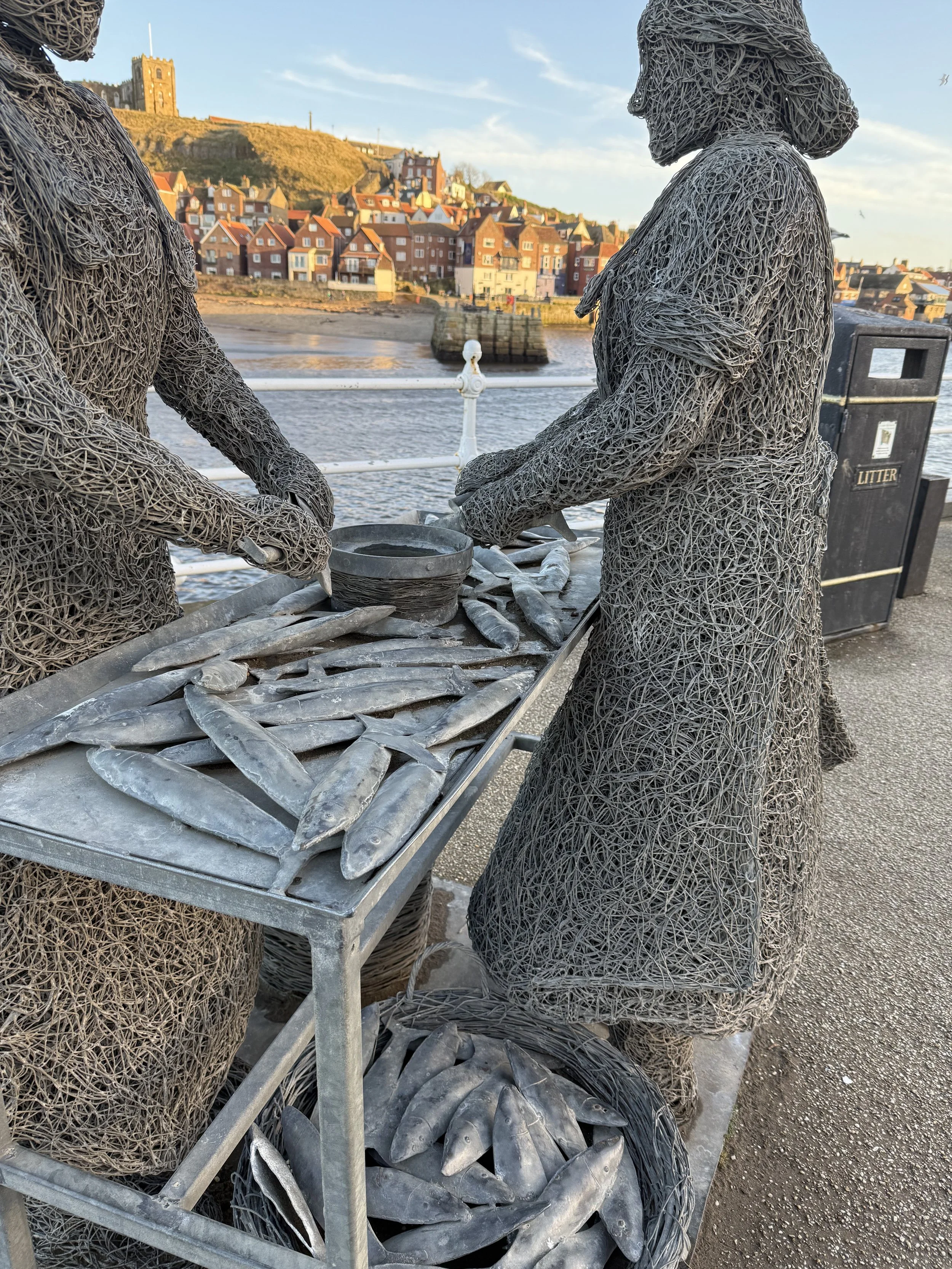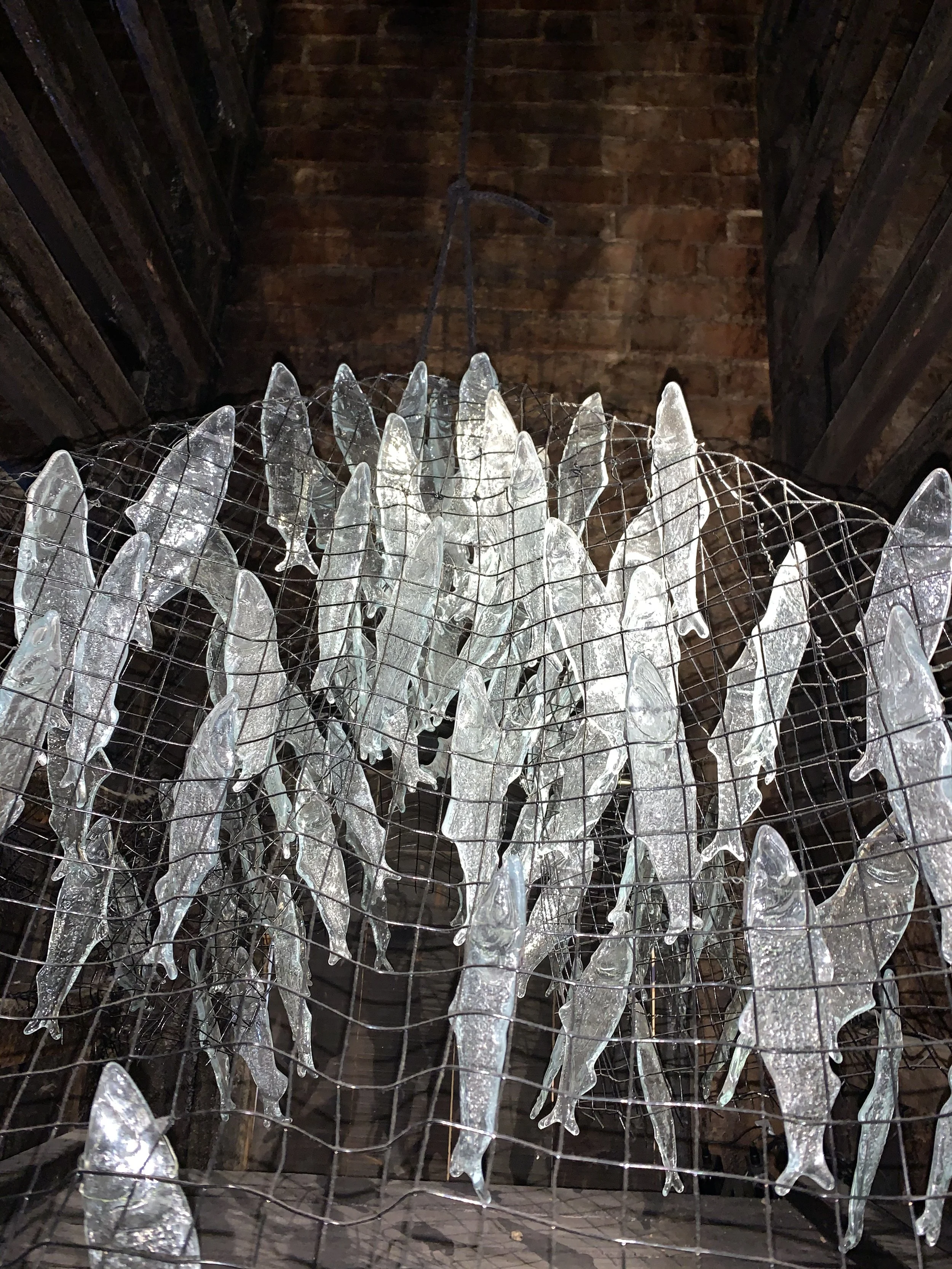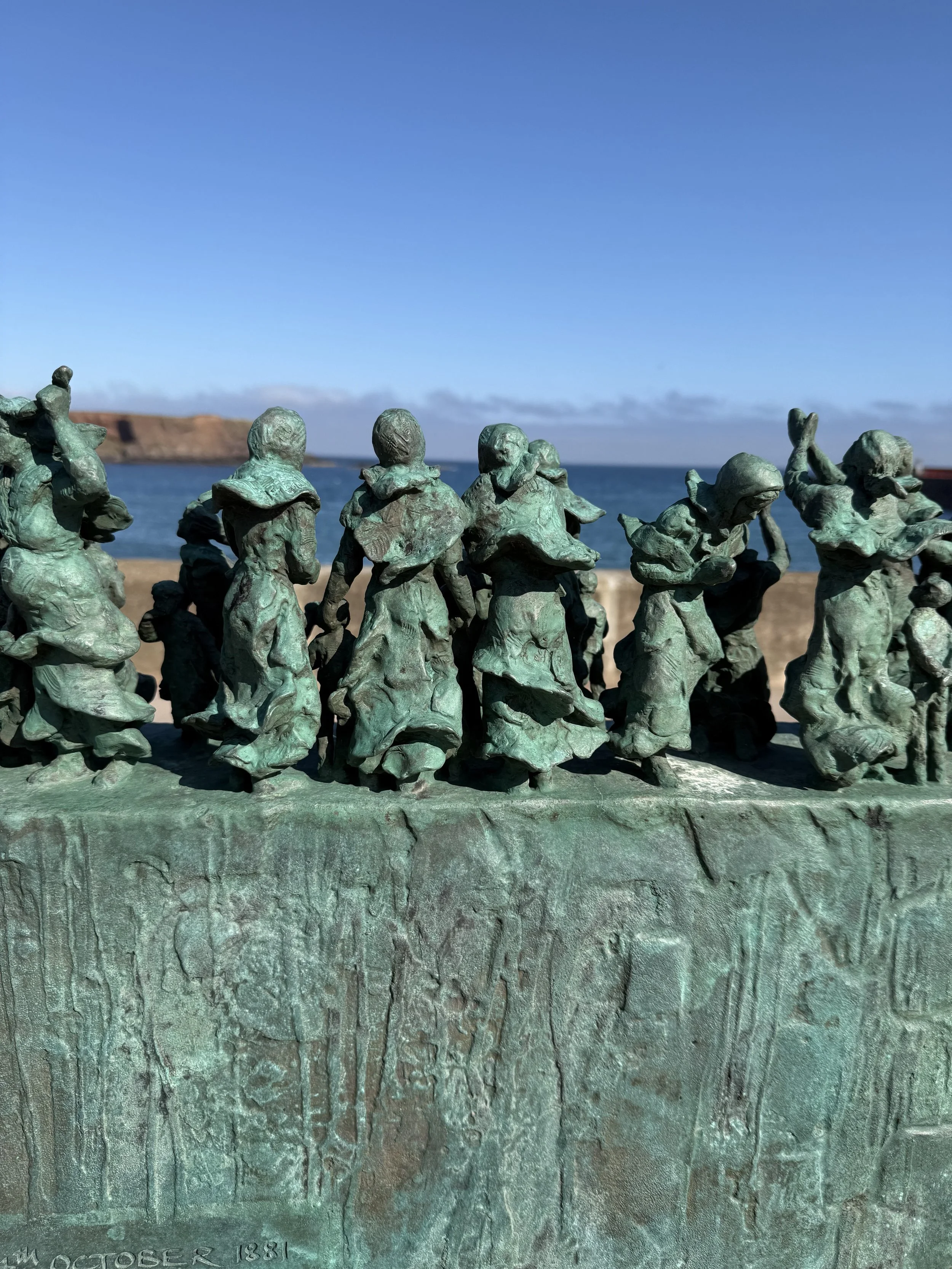Partners of Commercial Fishermen- Survey Results
This article covers only three themes identified within the survey - full report expected early 2026
Earlier this year, UK Women in Fisheries, collaborated with researchers from the University of Gloucestershire and the Countryside and Community Research Institute (CCRI)to conduct the first ever UK-wide Partners of Commercial Fishermen (POCF) Wellbeing Survey
For centuries, fishing families have supported coastal communities and the UK fishing fleet, but their contributions have often gone unseen and undocumented to decision-makers. This survey provides the first piece of evidence to understand partners’ roles, challenges, and resilience.
Why do we need this?
The UK fishing industry has always relied on family networks, with partners playing essential roles both at sea and ashore. Yet, until now, there has been no data about partners’ work, working hours, financial situations, or wellbeing. Establishing this evidence is vital as it allows UKWIF to highlight women’s contributions, advocate for equitable recognition, and inform policy discussions that too often overlook the unseen - and unpaid - workforce that sustains fishing businesses.
Hours of work, but little ownership
The survey found that, on average, a partner of a commercial fisherman will contribute 12 hours per week to the family fishing business, with 73% of these women also holding down paid employment outside of the fishing business. Despite this, 62% of women reported having no legal ownership of the vessel or business.
This inequity leaves women vulnerable, particularly in cases of business failure, relationship breakdown, or bereavement. It highlights a structural issue where women’s unpaid and unrecognised labour strengthens fishing enterprises without securing their rights. Comparable research from agricultural communities shows that legal ownership plays a critical role in women’s economic security and decision-making power. UK WIF are determined to recognise the roles women perform in the fishing sector and support women to secure recognition for their work within the fishing business, be that via financial compensation, obtaining legal advice or something else.
Women’s contributions: essential yet undervalued
An overwhelming 72% of respondents felt that their input was essential to the viability of the fishing business. The research highlighted the variety of roles performed by women, with the most common role cited being bookkeeping, but contributions spanned every aspect of the value chain: marketing, sales, crew matters, processing, boat maintenance, attending management meetings and more.
Globally, research has shown that women in fishing families perform diverse and indispensable tasks, often without formal pay or recognition.
UKWIF recognises the importance of every contribution, from bookkeeping and administration to seafood processing and selling. That’s why our network is open to all women across the seafood sector - not just vessel owners and women in the catching sector.
As well as this unpaid labour, the survey revealed that 73% of the women who responded had employment outside of fishing, with 75% of respondents stating that this additional source of income was essential to the financial stability of the household.
Pride in the face of uncertainty
The survey revealed a sobering picture of the economic future of fishing families: 81% of respondents said they do not feel positive about the long-term viability of their partner’s fishing business. And yet, 92% said they feel proud to be the partner of a commercial fisherman.
This pride has deep roots. Fishing families have long embodied values of perseverance, connection to the sea, and local food sovereignty. From the herring lasses of Scotland to the fishwives of Cornwall, women have always been central to the story of UK fisheries.
Wellbeing
The survey also raised concerns about wellbeing and mental health. Respondents reported:
38.5% struggle with sleep
31% often feel tired or lack energy
22.5% have difficulty concentrating
20% feel down, depressed, or helpless
Overall, 30% of respondents showed concerning signs of depression and/or anxiety based on standardised wellbeing measures. While the survey cannot prove that fishing-related stressors directly cause these issues, the connection is hard to ignore. Financial insecurity, long absences of partners at sea, and the pressures of managing family and business responsibilities undoubtedly contribute to emotional strain.
UKWIF is committed to using this data to advocate for better support systems for fishing families. Partners are the hidden backbone of the industry, and their wellbeing is essential to the sustainability of UK fisheries.
Next steps
The 2025 POCF Wellbeing Survey is a crucial first step in building a network that recognises the lived realities of fishing families. UKWIF will continue to use this research to inform decision-making, strengthen networks, and support women working in every corner of the seafood sector. From autumn 2025, we’re planning webinars, virtual meet-ups and more community partnerships to work on creating solutions to issues identified from these survey results.
For help and support, please visit the Safehavens page on the UKWIF website. If you’d like to share your ideas or connect with others, please reach out to Stephanie, Network Coordinator.
The full report on the results of the Partners of Commercial Fishermen Wellbeing Survey will be published in 2026. If you are interested to find out more, or would like to discuss the results, please contact Stephanie, Network Coordinator wifcoordinator@gmail.com
References
Chiswell, H., Atkins, M., Lucas, S., & Mullenger, A. (2025). Under the Surface: Partners of Commercial Fishermen - Mental Health & Wellbeing Survey [UK Dataset]. University of Gloucestershire in collaboration with UK Women in Fisheries.
Committee for Agriculture, Environment and Rural Affairs. (2022, 8 March). Breaking the Grass Ceiling: Challenges Women Experience in the Local Agriculture Sector (Report No. NIA 180/17-22). Northern Ireland Assembly.






